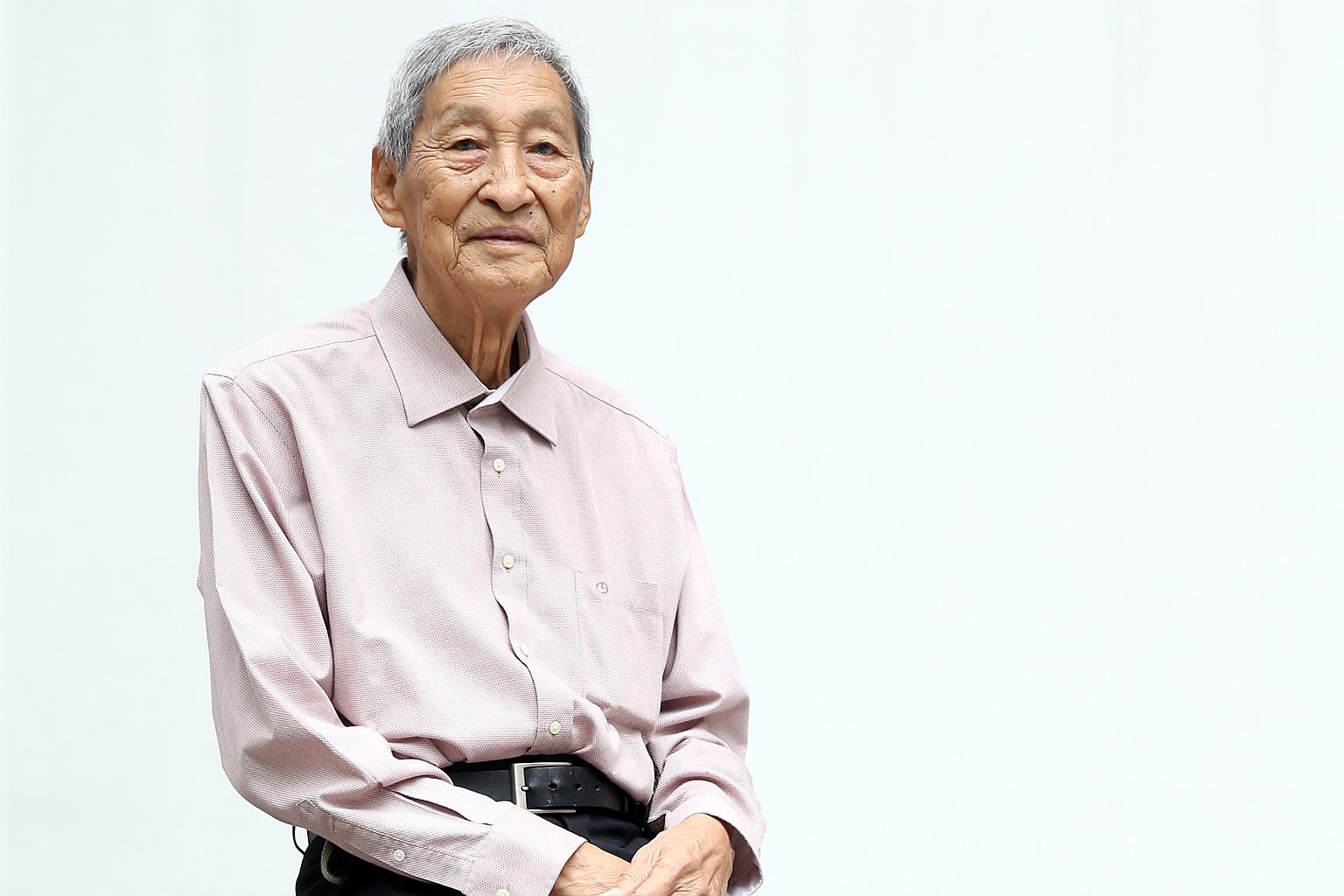Cultural Medallion recipient, artist and arts educator Lim Yew Kuan dies at 92
Sign up now: Get ST's newsletters delivered to your inbox

Artist Lim Yew Kuan was a second-generation Nanyang artist and succeeded his father Lim Hak Tai as the principal of Nafa.
PHOTO: ST FILE
Follow topic:
SINGAPORE - Artist Lim Yew Kuan died at the National University Hospital on Sunday (May 9) evening, aged 92, after sustaining a hip fracture in a fall on May 2.
The painter and sculptor, a Cultural Medallion recipient, was a second-generation Nanyang artist and succeeded his father Lim Hak Tai as the principal of the Nanyang Academy of Fine Arts (Nafa).
He shepherded the school through difficult times in the 1960s and 1970s when financial woes threatened its existence. The school's alumni raised funds by selling paintings to keep it going.
Lim was trained at Nafa and also studied at the Chelsea Institute of Fine Arts in London.
Dr Bridget Tracy Tan, 46, director, Institute of Southeast Asian Arts/ Art Galleries at the Nanyang Academy of Fine Arts, paid tribute to Lim's seminal role as an arts educator.
She said: "As an artist and a gentleman, Lim Yew Kuan is one of those rare examples of someone who truly believed in arts education. His life is a reflection of his value system.
"His personal history as an arts educator is synonymous with the history of Nafa in the seminal decades of nation building, national identity and the establishing of a strong social bonding for Singapore through the 1970s, 1980s and early 1990s. Art had a role to play in this developmental era, and Lim Yew Kuan was very much a part of that."
Watercolourist and Cultural Medallion recipient Ong Kim Seng, 75, remembered Lim as a supportive teacher.
As a teenager, Ong was part of a Sunday painting group with Chen Chong Swee and Lim Cheng Hoe, who would paint at the Singapore River in the mid-1970s.
"Mr Lim was quite encouraging and used to look at my very amateurish works and also say 'good but need to practise more'.
"He used to sing classical operas and spoke about his exploits when coming back from Britain with leftist banned books and being stopped by the immigration and customs during those early days."
Lim had taken music lessons at Nafa and attended vocal and music theory classes at the Guildhall School of Music and Drama while studying in London
Ong said that Lim would hang out with artists and Nafa students at a coffee shop near St Thomas Walk and added: "We have lost a flag bearer of social realism and Impressionism."
Lim was born in Xiamen, China and joined his father in Singapore at the age of 10 after the Sino-Japanese war broke out. His mother died en route in Hong Kong, and Lim arrived in Singapore with his elder brother, two elder sisters and one younger brother.
After World War II ended, Lim's father re-opened Nafa and Lim studied as well as taught at the school. His social consciousness was reflected in his paintings and woodblock prints which captured injustices he had witnessed during the Japanese Occupation and in postwar Singapore.
Dr Tan noted: "His practice was often to travel and to imbibe; to explore sceneries and environments around the world and bring them into his painting. The strength of his draughtsmanship and handling of his palette created powerful images not simply of landscapes and figures. His paintings and artworks offer us the experience of being present in a time and place."
He founded the Equator Art Society in 1956, which focused on social realist art. Other members included Chua Mia Tee and Ong, and the society adopted an anti-colonial stance while championing national pride.
Mr Jeffrey Say, programme leader, MA Asian Art Histories, at Lasalle College of the Arts, said Lim's legacy deserves more attention: "As an artist, he was extremely versatile, being able to work with painting, sculpture and woodblock print. His work depicts the social and political realities of life in Singapore in the 1950s and 1960s. Despite this, he is often under-acknowledged as an artist."
Dr Seng Yu Jin, 41, deputy director (curatorial & research) at the National Gallery Singapore which has five Lim works on display, said: "Lim advanced the practices of printmaking and sculpture through his participation in the Six-Men Woodcut (1966), and the Sculpture '67 (1967) exhibitions. These two exhibitions were art historically significant as the first exhibitions acknowledging the importance of woodcut and sculpture in Singapore."
For his artistic contributions, Lim was awarded the Pingat Bakti Masyarakat (Public Service Medal) in 1980 and the Cultural Medallion in 2011.
Lim is survived by four children from his first marriage, his wife Sue Cher, 56 and their four children.

